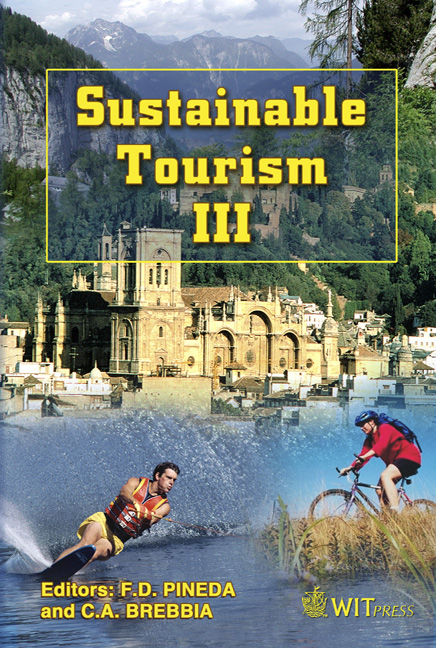Nautical Tourism – The Advantages And Effects Of Development
Price
Free (open access)
Transaction
Volume
115
Pages
10
Published
2008
Size
2,282 kb
Paper DOI
10.2495/ST080041
Copyright
WIT Press
Author(s)
S. Favro & Z. Gržetić
Abstract
In the last thirty years, when a more significant development of nautical tourism in Croatia started, nautical tourism has proved to be one of the most propulsive and stable forms of tourism. Using its comparative advantages, nautical tourism attracts the most demanding clients and initiates a number of accompanying business activities and foreign investments. The positive effects of nautical tourism are evident at all levels, from national to local, but also at the level of business activities. Besides a series of indisputable and clear economic and social benefits realised during the development of nautical tourism and its effects, such a development led to a number of disadvantages. Possible negative effects of marinas to the marine environment and its living world necessitate harmonisation of the development of nautical tourism with other priorities, all based on the principles of sustainable development. One of the significant priorities of Croatia is environment protection. When compared to other categories of dispersed sources of pollution/contamination from urban settlements and agriculture, marinas and nautical tourism cannot be characterised as significant sources of dispersed pollution. However, marinas and nautical tourism may lead to a decrease of the seawater quality from the local aspect and to a negative influence on biological communities of marine organisms and ecosystems. Strict observance of the principles of sustainable development through implementation of the current regulations and laws related to environment protection may ensure that marinas be a guarantor of the preservation of natural values of the water area. Keywords: nautical tourism, environment, sustainable development, spatial planning, yacht pollution, marine environment, systematic development.
Keywords
nautical tourism, environment, sustainable development, spatial planning, yacht pollution, marine environment, systematic development.





